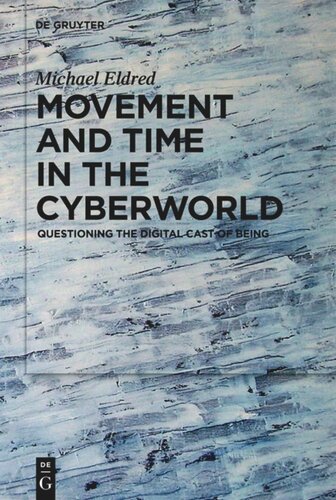

Most ebook files are in PDF format, so you can easily read them using various software such as Foxit Reader or directly on the Google Chrome browser.
Some ebook files are released by publishers in other formats such as .awz, .mobi, .epub, .fb2, etc. You may need to install specific software to read these formats on mobile/PC, such as Calibre.
Please read the tutorial at this link: https://ebookbell.com/faq
We offer FREE conversion to the popular formats you request; however, this may take some time. Therefore, right after payment, please email us, and we will try to provide the service as quickly as possible.
For some exceptional file formats or broken links (if any), please refrain from opening any disputes. Instead, email us first, and we will try to assist within a maximum of 6 hours.
EbookBell Team

0.0
0 reviewsThe cyberworld fast rolling in and impacting every aspect of human living on the globe today presents an enormous challenge to humankind. It is taken up by the media following current events through to all kinds of natural- and social-scientific discourses. Digitized technoscience develops at a breakneck pace in all areas accompanied by sociological analysis. What is missing is a philosophical response genuinely posing the basic ontological question: What is a digital being's peculiar mode of being? The present study offers a digital ontology that analyzes the dissolution of beings into bit-strings, driven by mathematized science. The mathematization of knowledge reaches back to Pythagoras, Plato and Aristotle, and continues with Descartes, Galileo, Newton, Leibniz. Western knowledge from its inception has always been driven by an unbridled will to efficient-causal power over all kinds of movement and change. This historical trajectory culminates in the universal Turing machine that enables efficient, automated, algorithmic control over the movement of digital beings through the cyberworld. The book fills in the ontological foundations underpinning this brave new cyberworld and interrogates them, especially by questioning the millennia-old conception of 1D-linear time. An alternative ontology of movement arises, based on a radically alternative conception of 3D-time.